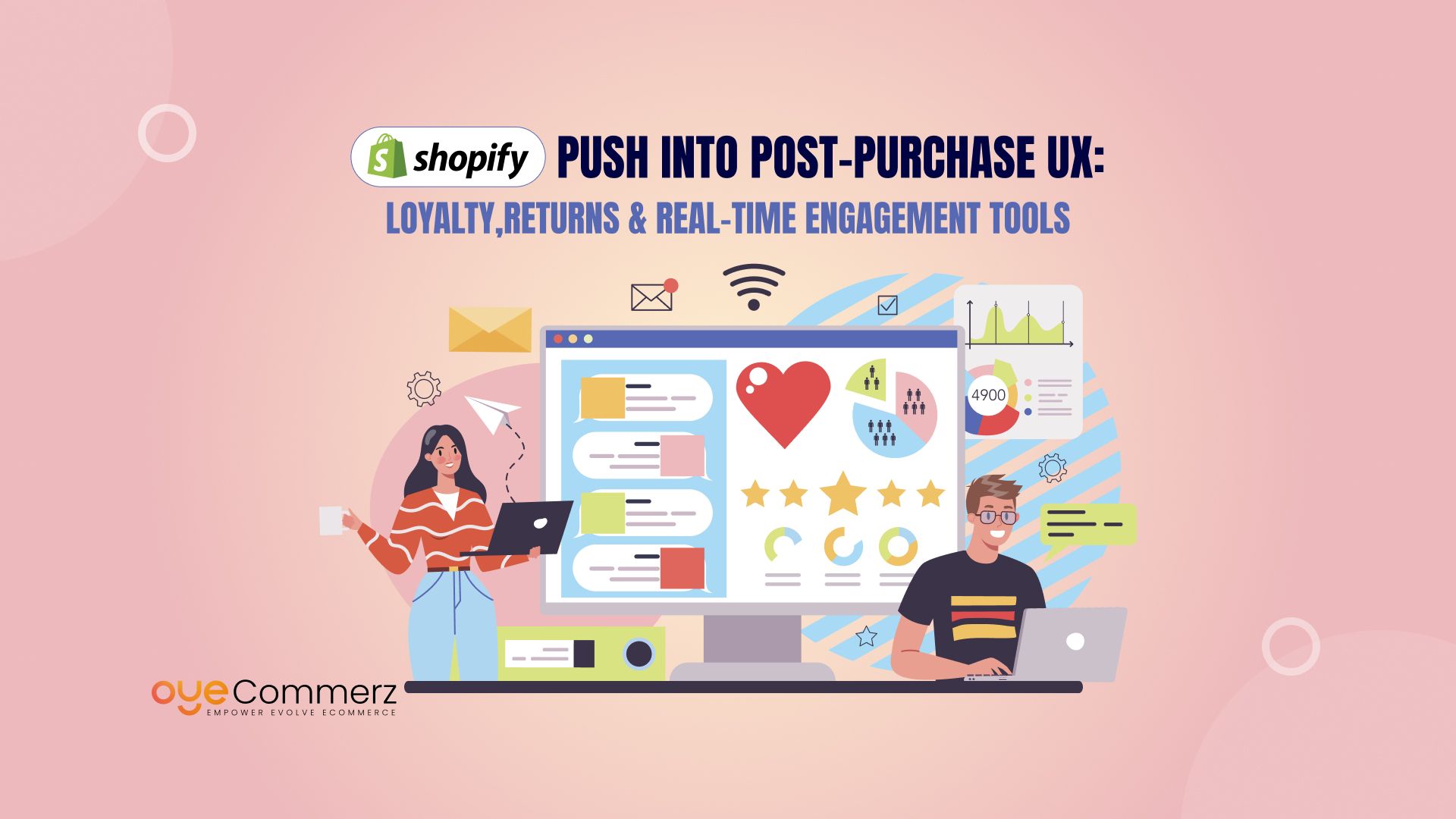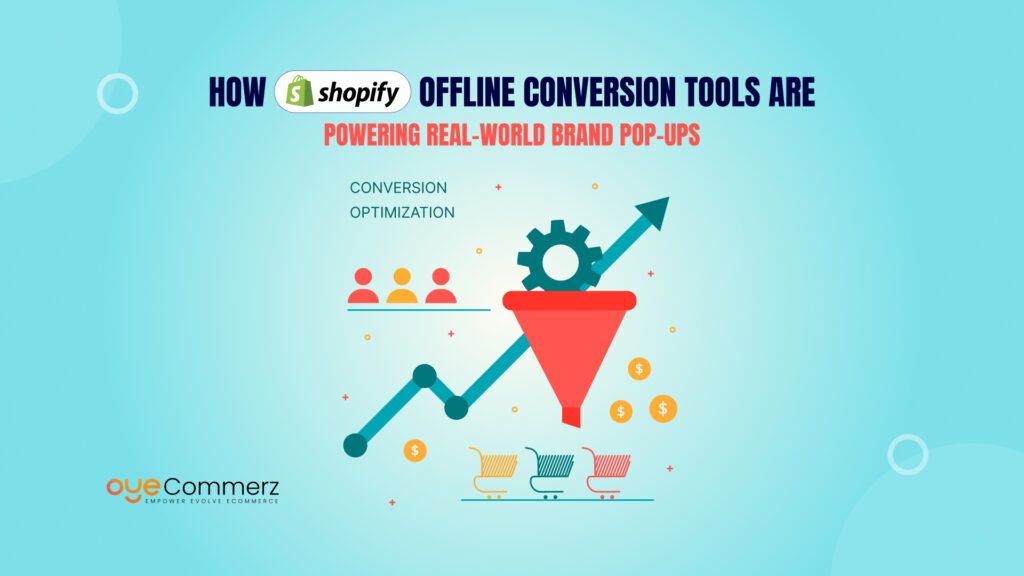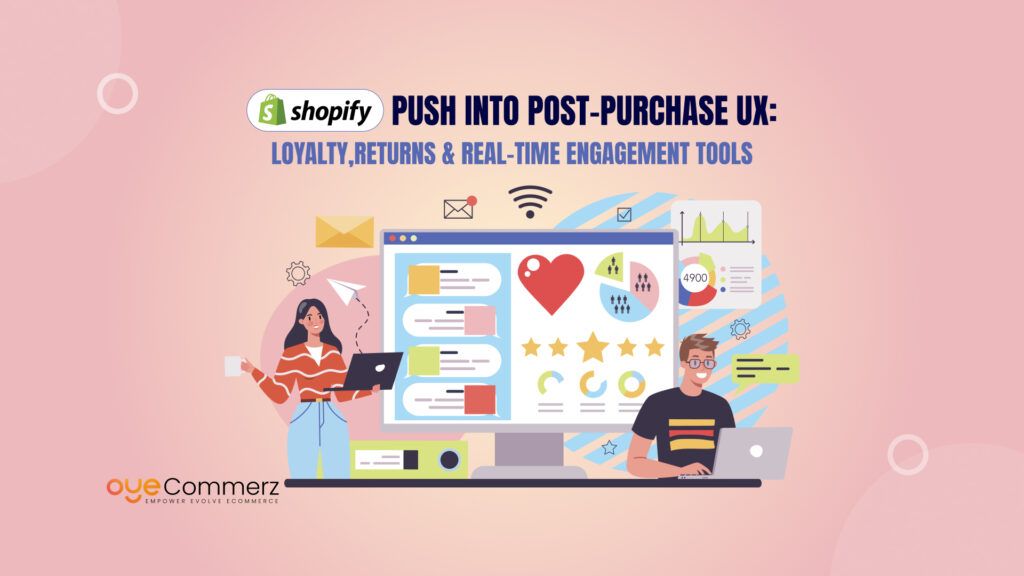Salesforce Commerce Cloud has long been the gold standard in enterprise-level e-commerce, powering digital experiences for brands like Adidas, L’Oreal, and Coca-Cola. With nearly 21% of large US retailers using Salesforce Commerce Cloud, it’s been seen as the go-to for scalable, omnichannel commerce.
But here’s the problem: the platform is expensive, resource-intensive, and not exactly beginner-friendly. For growing businesses or mid-market brands aspiring to scale, Salesforce Commerce Cloud’s complexity and cost can be a serious bottleneck.
That’s where Shopify is stepping up fast.
Shopify’s new Enterprise Toolkit, paired with Shopify Plus, aims to close this gap, delivering scalability, headless capabilities, omnichannel tools, and powerful automation but without the steep learning curve or high TCO (Total Cost of Ownership) that Salesforce demands.
So the big question:
Can Shopify’s Enterprise Toolkit finally compete with Salesforce Commerce Cloud?
And more importantly should your brand make the switch?
Table of Contents
ToggleUnderstanding Salesforce Commerce Cloud: The Enterprise Standard
In the world of enterprise e-commerce, brands need more than just a digital storefront they need scalable infrastructure, deep integrations, and data-driven personalization. Many turn to Salesforce Commerce Cloud as the gold standard. But is it still the best choice?
While Salesforce Commerce Cloud offers robust featuresAI-powered product recommendations, multi-site management, and real-time inventory syncing it comes at a cost. Enterprise clients often face high setup and licensing fees, lengthy implementation timelines, and a dependency on certified developers. For growing businesses or lean teams, this can mean slower innovation and higher operational complexity.
Understanding what Salesforce Commerce Cloud does well is key to evaluating whether Shopify’s new enterprise toolkit truly competes. With Salesforce, you get:
- Omnichannel capabilities that sync physical and digital experiences
- AI and automation via Einstein for personalized product recommendations
- B2B and B2C flexibility in a single platform
- Scalability for global operations with enterprise-grade security and hosting
- Custom workflows and integrations that meet the demands of large-scale retail
But the critical question remains: Does Shopify now offer the same muscle without the friction? Before diving into the comparison, let’s unpack what Shopify has brought to the enterprise table and why brands are reconsidering their tech stack.
Understanding Salesforce Commerce Cloud: The Benchmark for Enterprise E-commerce
For years, Salesforce Commerce Cloud has set the standard in enterprise e-commerce. Brands that demand scalability, personalization, and global reach often lean toward this robust platform. But its complexity, cost, and integration demands have raised barriers for growing businesses looking for agility without sacrificing power.
While Salesforce Commerce Cloud delivers enterprise-grade capabilities like AI-driven personalization, omnichannel orchestration, and deep CRM integration, it comes at a price both financially and technically. Custom development can stretch timelines, licensing costs can quickly add up, and its steep learning curve often demands a dedicated tech team or agency. For businesses that want to innovate faster, this can be a frustrating bottleneck.
A 2024 Gartner report showed that 62% of mid-to-large retailers using Salesforce Commerce Cloud cited high total cost of ownership (TCO) as their top challenge especially when compared with emerging, agile platforms like Shopify.
Shopify’s new Enterprise Toolkit is now positioning itself to address these very limitations. While Salesforce Commerce Cloud will still serve certain enterprise verticals well (especially those heavily invested in the Salesforce ecosystem), Shopify is becoming a strong contender for brands that prioritize speed, flexibility, and total cost control.
By integrating features like custom storefronts, advanced APIs, B2B functionality, and extensible backend logic with Shopify Functions, Shopify is now challenging the long-standing dominance of Salesforce Commerce Cloud in areas where agility and ease-of-use matter most.
Key Features of Salesforce Commerce Cloud to Keep in Mind:
- AI Personalization (Einstein): Automated product recommendations and merchandising
- Multi-site, Multi-language Support: Ideal for global brands
- Deep CRM Integration: Native connection with Salesforce Sales & Marketing Cloud
- Scalability: Handles high-volume traffic and transactions with ease
- Enterprise Workflow Automation: Customizable order and fulfillment workflows
Still, the question remains: Are these features enough to maintain its edge now that Shopify is playing in the enterprise league?
Salesforce Commerce Cloud: Strengths, But Not Without Friction
For over a decade, Salesforce Commerce Cloud has been the go-to enterprise solution for many large retail and DTC brands. With its extensive CRM integration, scalable architecture, and personalization engine, it carved a strong foothold in the mid-to-large enterprise commerce space.
Yet, despite these capabilities, many businesses are now facing operational friction.
Salesforce’s powerful feature stack comes with high customization costs, a complex development environment, and long deployment cycles. Brands looking to pivot fast whether to experiment with new channels, launch DTC arms, or localize experiences often find themselves slowed down. The dependency on developers for even small changes adds to the bottleneck.
In an age where agility, composability, and omnichannel responsiveness are essential, Salesforce Commerce Cloud’s monolithic rigidity is starting to show.
A 2024 Gartner report indicated that 57% of enterprises using traditional commerce platforms cite “speed of innovation” as their biggest challenge. Moreover, cost-to-value ratio continues to be a growing concern, especially as Shopify continues to close the functionality gap.
Salesforce Commerce Cloud still excels in several areas:
- Deep CRM-native personalization via Salesforce ecosystem
- Powerful merchandising and catalog tools
- Robust multi-site and multi-language capabilities
- Enterprise-grade security and compliance
However, it’s essential to evaluate whether these features still offer a competitive edge especially when platforms like Shopify have made massive strides in modularity, app extensibility, and B2B features tailored for enterprise use.
Salesforce Commerce Cloud: Strengths That Have Defined the Enterprise Standard
Salesforce Commerce Cloud (SFCC) has long been positioned as the go-to platform for large-scale retailers and enterprise brands and for good reason. Its rich feature set, enterprise-grade capabilities, and integration within the Salesforce ecosystem make it a formidable force in the e-commerce space.
Let’s break down why many enterprises have trusted Salesforce Commerce Cloud for years:
1. Deep CRM Integration
One of the platform’s strongest advantages is its seamless connection with Salesforce CRM. This gives brands a unified view of their customers across marketing, sales, and service which in turn allows for personalized and data-driven shopping experiences.
2. Scalability for Global Brands
SFCC is built to support large product catalogs, global storefronts, and complex organizational hierarchies. It powers international retail operations with native support for multi-language, multi-currency, and cross-border commerce compliance.
3. AI-Powered Personalization with Einstein
Salesforce’s built-in AI engine, Einstein, enables real-time product recommendations, automated merchandising, and predictive insights. This personalization has become essential in increasing conversion rates and customer retention.
4. Robust B2C and B2B Capabilities
The platform supports both B2C and B2B business models, with tools for managing customer-specific pricing, contract terms, and self-service portals.
5. Security and Compliance Leadership
Salesforce Commerce Cloud adheres to strict security protocols, including SOC 2 and GDPR compliance. This is crucial for brands in regulated industries or those operating in multiple international markets.
6. Enterprise-Level Support
24/7 support, dedicated account teams, and implementation partners offer the level of service and reliability enterprise businesses demand.
Salesforce Commerce Cloud has earned its place as a powerhouse in the enterprise e-commerce market. However, with the rise of headless commerce, increased demand for agility, and lower TCO (total cost of ownership), the market is evolving and new contenders like Shopify’s enterprise toolkit are rapidly gaining ground.
Where Salesforce Commerce Cloud Still Holds Ground
Despite Shopify’s rapid expansion into the enterprise market, Salesforce Commerce Cloud (SFCC) continues to retain a stronghold in several key areas that can’t be ignored by large-scale businesses.
For brands deeply entrenched in multi-cloud ecosystems or with highly complex B2B operations, Salesforce Commerce Cloud still offers an unmatched level of integration across CRM, service, and marketing automation. Its AI capabilities (via Einstein), real-time personalization at scale, and highly robust promotion and pricing engines are deeply woven into enterprise workflows.
Moreover, legacy brands that have spent years optimizing on SFCC often face substantial re-platforming costs making the switch to Shopify seem risky without guaranteed ROI.
However, the e-commerce landscape is shifting. Shopify is rapidly iterating to match these enterprise-grade features, and the gap is narrowing. While Salesforce Commerce Cloud remains dominant in data-heavy, multi-entity deployments, Shopify now competes on speed, scalability, total cost of ownership, and development flexibility.
For businesses reevaluating long-term e-commerce strategy, this is a pivotal moment to assess whether they need SFCC’s full stack if a leaner, faster Shopify setup could serve better at lower operational complexity.
Salesforce Commerce Cloud: Still the Gold Standard for Enterprise?
For years, Salesforce Commerce Cloud has maintained a stronghold in the enterprise e-commerce space. Known for its extensive CRM integration, built-in AI features, and robust personalization, it has long been the go-to choice for established retail giants. But with that power comes a costboth in complexity and budget.
Despite its capabilities, many brands feel boxed in. Implementation timelines are long. Customizations require heavy development. Licensing fees can skyrocket. And in a digital commerce environment where agility is king, Salesforce’s traditional enterprise model often feels misaligned with today’s pace.
- 53% of enterprise retailers cite platform rigidity as a barrier to experimentation on Salesforce.
- The average Salesforce Commerce Cloud implementation can take 6–12 months, often requiring specialized partner support.
This is where Shopify’s revamped Enterprise Toolkit becomes compelling. With its plug-and-play app ecosystem, API extensibility, and Shopify Functions, it offers enterprise-grade features without the friction of legacy systems. The performance gap that once gave Salesforce the upper hand is narrowing fast.
If your brand is evaluating a switch or just entering the enterprise tier, it’s worth asking: Are you paying for power, or are you paying for complexity?
Key Takeaway:
Salesforce Commerce Cloud still dominates in highly regulated or global multi-brand environments. But for growing enterprise brands that need speed, flexibility, and scalability, Shopify’s modern infrastructure is now a serious contender.
Contact to Migrate your Site to Shopify Now
Why Businesses Are Rethinking Salesforce Commerce Cloud in 2025
For years, Salesforce Commerce Cloud was considered the gold standard in enterprise-level e-commerce. Its deep CRM integration, powerful AI capabilities, and extensive customization attracted large enterprises. But many brands now face growing concerns about cost, development complexity, and platform agility.
According to a 2025 Gartner report, over 38% of enterprise retailers using Salesforce Commerce Cloud reported delayed deployment cycles due to platform rigidity. Add to that high licensing fees and a growing dependence on developer resources, and you begin to see the cracks in the foundation. Brands are no longer just looking for power, they want speed, flexibility, and lower TCO (Total Cost of Ownership).
Moreover, the pace of innovation has shifted. Shopify’s rapid product rollouts, intuitive UX, and open ecosystem are closing the once-wide gap. For companies seeking quicker experimentation, simplified management, and omni channel readinessSalesforce Commerce Cloud may now feel like legacy infrastructure.
That’s why mid-market and even enterprise-level businesses are seriously evaluating Shopify Plus and its new Enterprise Toolkit as a scalable alternative. From headless capabilities and B2B features to real-time data integrations, Shopify is addressing what used to be Salesforce’s strongest differentiators.
And the big bonus? Merchants can cut operational complexity by half and reduce development cycles by up to 40%all while gaining ownership over their storefronts without endless backend tickets.
Salesforce Commerce Cloud: Why It Remains a Strong Contender
Many enterprises still rely heavily on Salesforce Commerce Cloud due to its robust features and proven scalability. However, with increasing costs and complexity, businesses are questioning whether this platform remains the best fit for their evolving needs.
Salesforce Commerce Cloud offers extensive customization, advanced AI-driven personalization, and seamless multi-channel integration. But these strengths come at a premium price, often requiring specialized development teams and longer deployment cycles. For many companies, this translates to higher upfront investment and ongoing operational costs challenges that can limit agility and growth potential in today’s fast-paced e-commerce landscape.
Despite these challenges, Salesforce Commerce Cloud continues to set a high standard for enterprise-grade e-commerce. Its comprehensive suite of tools supports complex business models and global expansion with ease. For organizations prioritizing deep customization, robust analytics, and a wide partner ecosystem, Salesforce Commerce Cloud remains a top choice. However, newer platforms like Shopify’s Enterprise Toolkit are closing the gap by offering simpler, more cost-effective alternatives without sacrificing essential enterprise capabilities.
Conclusion
While Salesforce Commerce Cloud has long been recognized as a robust enterprise e-commerce platform, Shopify’s Enterprise Toolkit is rapidly closing the gap with powerful features, scalability, and flexibility tailored for large businesses. For US-based enterprises seeking a cost-effective and user-friendly alternative, Shopify now presents a compelling option without compromising on performance or customization.
If you are considering a move from Salesforce Commerce Cloud or exploring Shopify for the first time, partnering with experts like Oyecommerz can ensure a smooth and efficient migration process, maximizing your e-commerce potential.
Ultimately, the choice between Salesforce Commerce Cloud and Shopify depends on your specific business needs, but with Shopify’s enterprise advancements, the playing field is more level than ever before.
Frequently Asked Questions
The best loyalty program for Shopify depends on your store’s goals, but Smile.io, LoyaltyLion, and Rise.ai are highly rated for their features, integrations, and ease of use. They offer points-based rewards, referral incentives, and VIP tiers—all directly integrated with Shopify.
The 3 R’s of loyalty are Reward, Recognize, and Retain.
- Reward your customers for repeat purchases or engagement.
- Recognize their value with personalized offers or tiers.
- Retain them through ongoing incentives and great service.
Yes, Shopify supports loyalty programs through both built-in tools and third-party apps available on the Shopify App Store. These apps plug directly into your store and help track, manage, and automate customer rewards.
You can create a loyalty program by installing a compatible app like Smile.io or LoyaltyLion from the Shopify App Store. Once installed, customize your points system, rewards, and customer tiers to match your brand strategy.
Yes, loyalty programs are highly effective for small stores. They increase customer retention, reduce acquisition costs, and encourage word-of-mouth referrals—all critical for early growth.




